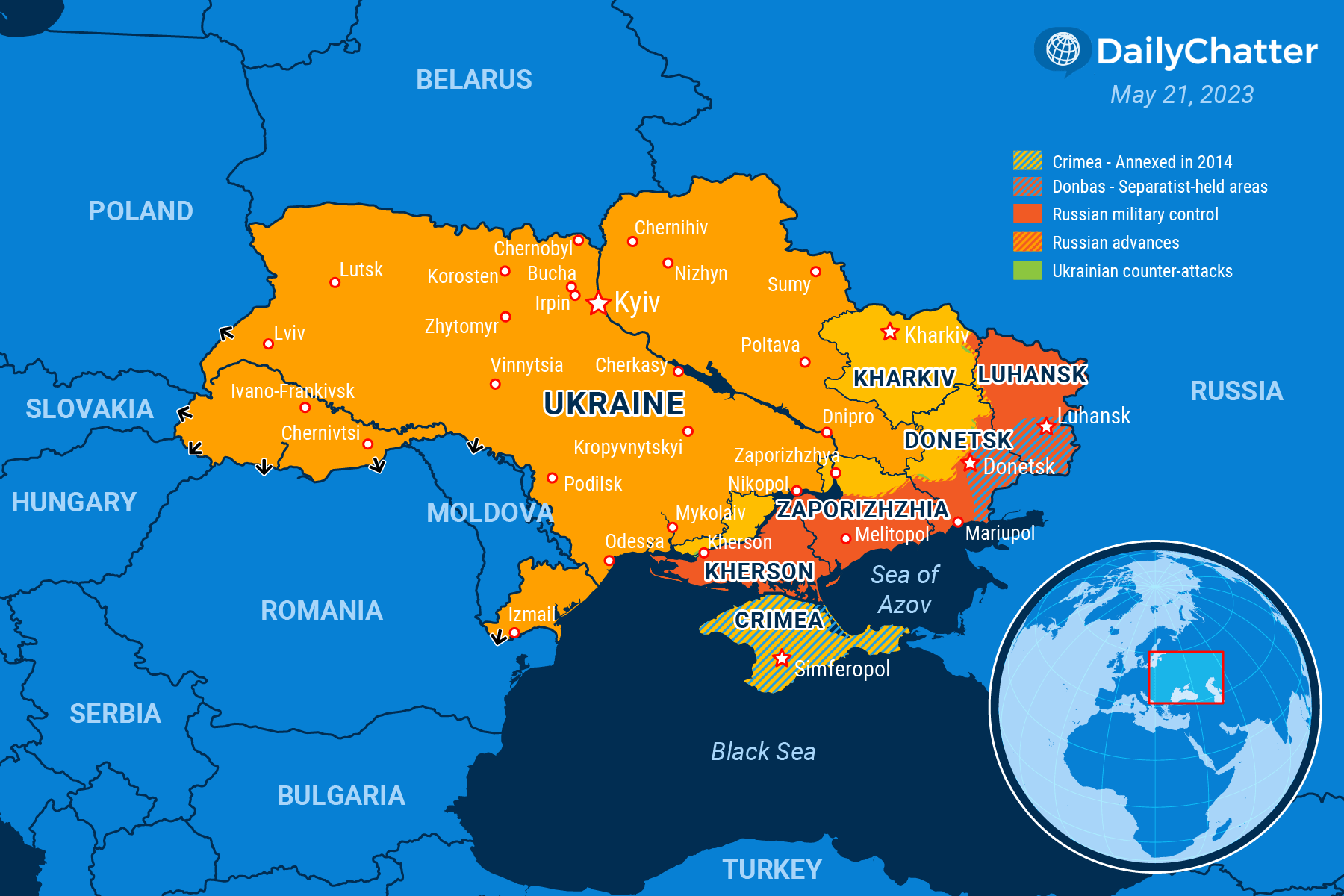The World Briefly
September 29, 2023Ukraine, Briefly
RussiaUkraine

|
Listen to Today's Edition
|
This week, Russia conducted a series of air strikes on three Ukrainian regions, targeting Mykolaiv and Odesa in the south and Kirovohrad in central Ukraine, Reuters noted. Ukrainian air defenses intercepted 34 of the 44 incoming “Shahed” drones used in the attack. While some drones were destroyed, there were reports of hits in Kirovohrad. No casualties or significant damage to civilian infrastructure were reported. The strike marked one of the largest drone attacks by Russia in recent times. Ukraine has been discussing ways to bolster its air defenses with allies amid ongoing Russian attacks.
Also this week:
- Moscow launched a missile and drone attack on the Black Sea port of Odesa, damaging the port and grain warehouses, the Washington Post reported. Two people were killed, and fires erupted across the area. The attack is part of a series of assaults targeting Ukraine’s grain industry, impacting its economy. Ukraine has faced challenges in exporting grain because of disruptions in the Black Sea and resistance from neighboring countries such as Poland fearing an influx of cheap Ukrainian grain. The ongoing attacks are exacerbating regional tensions and complicating Ukraine’s efforts to meet global food demand.
- Norwegian scientists have shared seismic evidence of four explosions related to the attack on the Nord Stream pipelines in the Baltic Sea, including two previously undisclosed detonations, according to the Guardian. The explosions, which occurred off the Danish Baltic island of Bornholm, damaged the Nord Stream 1 and Nord Stream 2 pipelines. While investigations are ongoing, evidence suggests the involvement of a Ukrainian-backed group or a pro-Ukrainian group operating without the Ukrainian government’s knowledge, investigators said. The attack on Nord Stream pipelines, a crucial gas transport route from Russia to Germany, has been linked to a dispute over grain exports, further escalating regional tensions.
- Canadian Prime Minister Justin Trudeau issued an apology after a man who served in a Nazi unit during World War II was honored in parliament, Al Jazeera wrote. Yaroslav Hunka, 98, received standing ovations during a special parliamentary session attended by Ukrainian President Volodymyr Zelenskyy. However, Jewish community groups later reported that Hunka served in the 14th Waffen Grenadier Division of the Nazi’s SS military wing during World War II, leading to calls for an explanation and an apology. Trudeau apologized to Zelenskyy and the Ukrainian delegation. Russian authorities have justified their continued assault on Ukraine as part of a push to “de-Nazify” the country, while Trudeau’s office stated they had no advance knowledge of Hunka’s invitation to parliament. The controversy led to the resignation of the parliamentary speaker, Anthony Rota, and calls by Polish politicians to have Hunka extradited to Poland, Newsweek added.
Not already a subscriber?
If you would like to receive DailyChatter directly to your inbox each morning, subscribe below with a free two-week trial.
Support journalism that’s independent, non-partisan, and fair.
If you are a student or faculty with a valid school email, you can sign up for a FREE student subscription or faculty subscription.
Questions? Write to us at hello@dailychatter.com.

